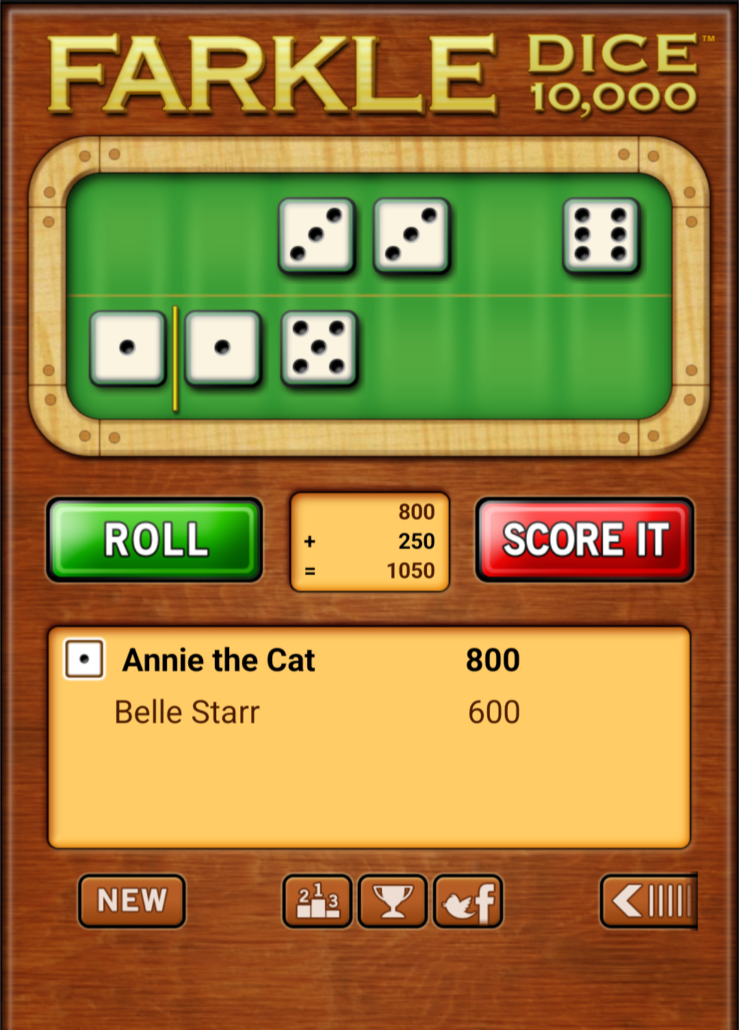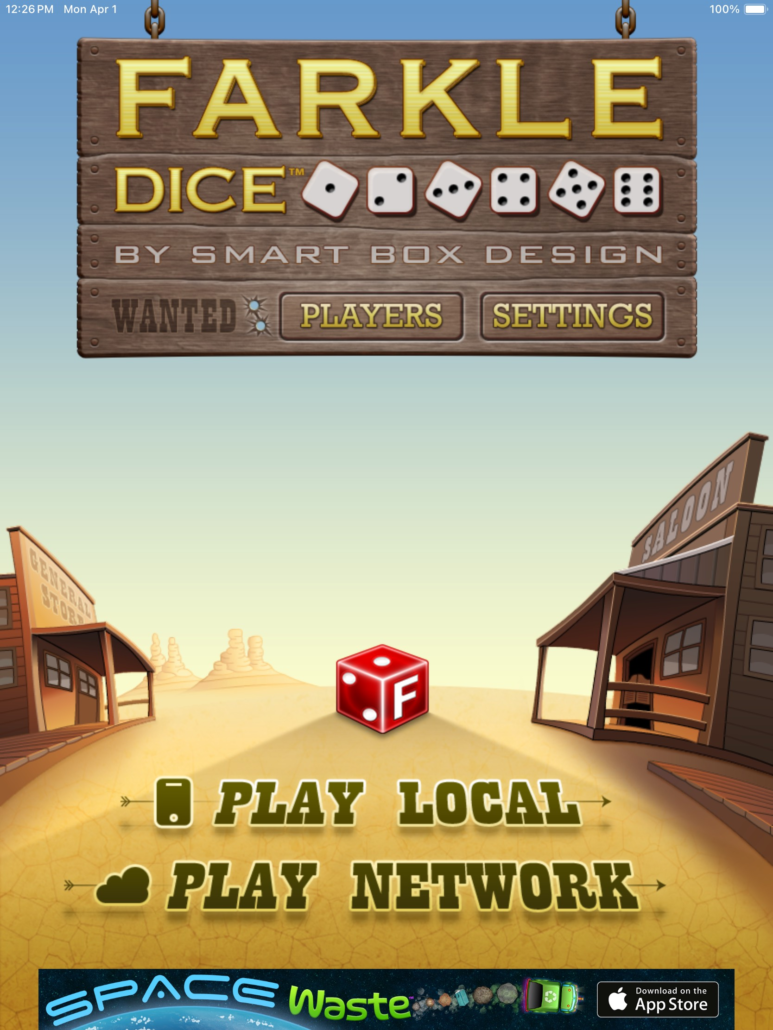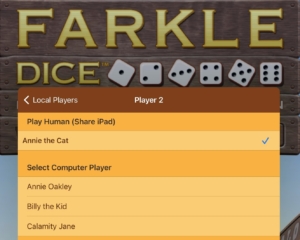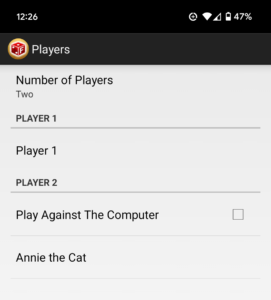With only three dice remaining in Farkle, a curious decision arises: roll again for potentially more points or hold (score-it) to avoid a Farkle.
While the odds of rolling a Farkle are high-ish, around 28% (or a little less than 1 in 3.6), it’s important to consider the bigger picture.

Strategy First, Odds Second!
Evaluate your current standing:
- Are you behind by a large margin? If so, aggressively pursue points by rolling again.
- Do you have a comfortable lead? Consider playing it safe and keeping your accumulated points.
- How close are you to 10,000 and how close is your opponents score?
The Art of Risk Assessment
What is your personal risk tolerance? Here are some general guidelines:
Roll again if:
- You have a low turn score (for me it’s 300 or fewer points)
- You have a huge lead and Farkling would not jeopardize your position
- You’re feeling lucky and want to gamble for a higher score
Hold if:
- Your turn score is already high (over 500 points for example)
- You’ve already have two Farkles and don’t want to risk a third and its penalty
- You are nearing 10,000 points but you want one more turn to increase your lead
The “Maybe” Zone:
- Your opponent is playing aggressively and you need to keep the lead
- You are way behind and you need to take a chance to catch up
Listen to Your Gut (Sometimes)
While the odds provide valuable information, there’s also a place for intuition. You’re thinking, it’s not a 28% chance of Farkling but a 72% chance of scoring and you’re feeling lucky ????. Conversely, a string of bad rolls might prompt you to play it safe and let your opponent make a mistake.
By considering these factors, you can make informed decisions about rolling the dice with only three remaining, maximizing your chances of winning.
If you don’t have Farkle Dice or Solo apps, choose a link to get them, it’s FREE






